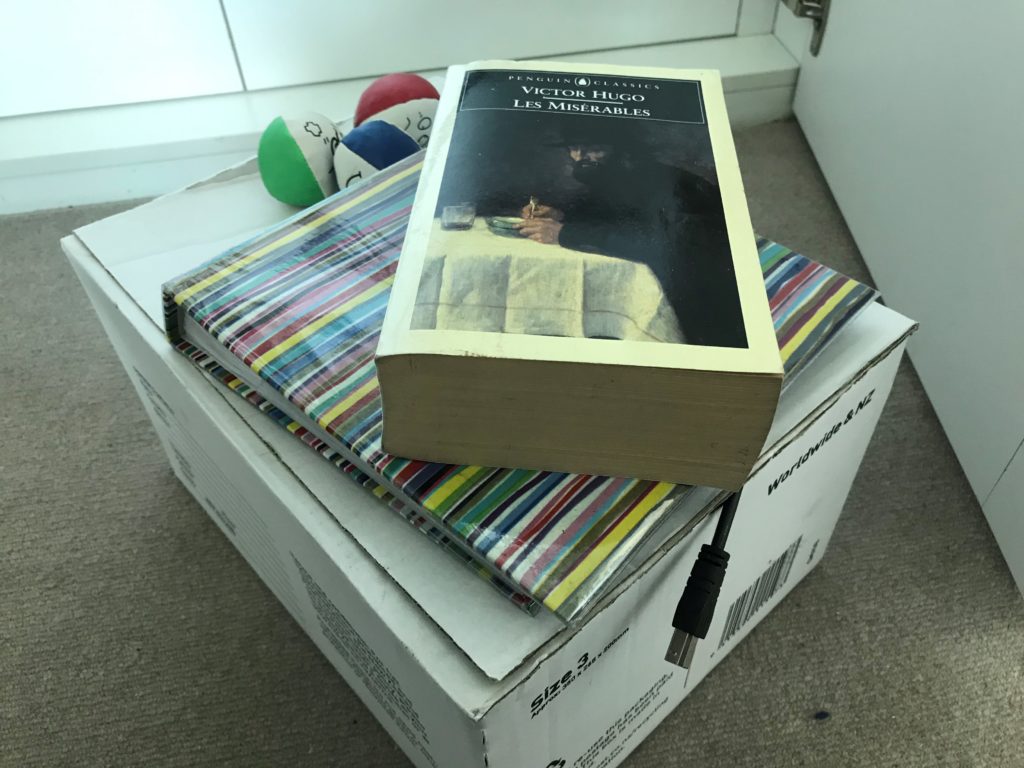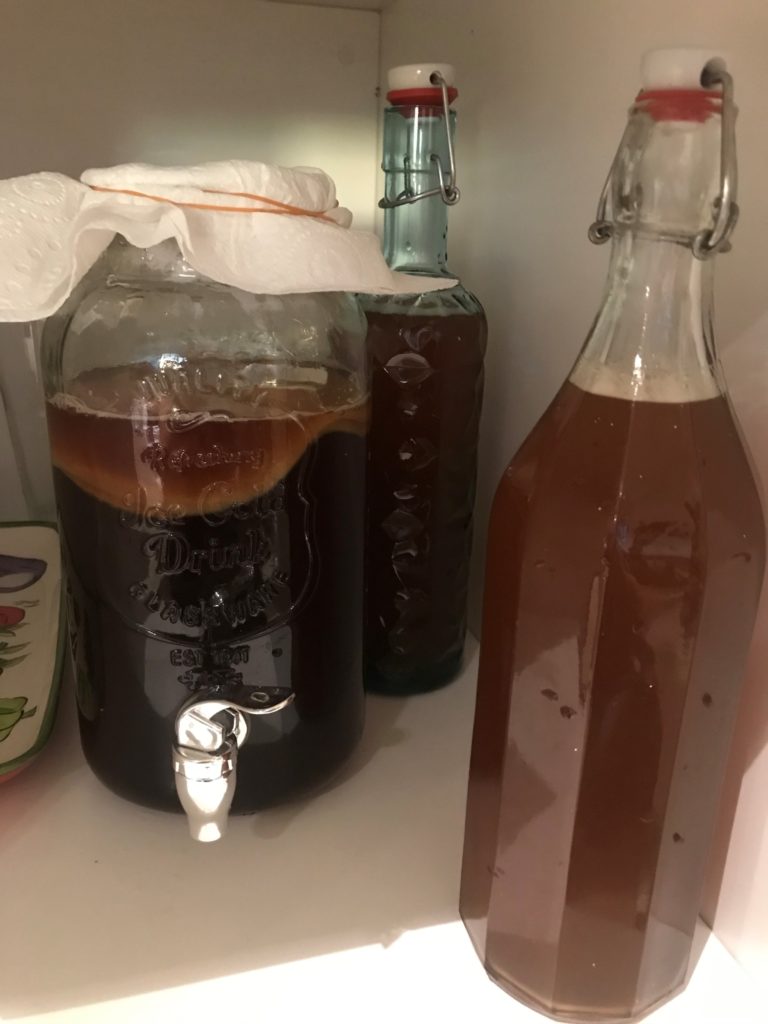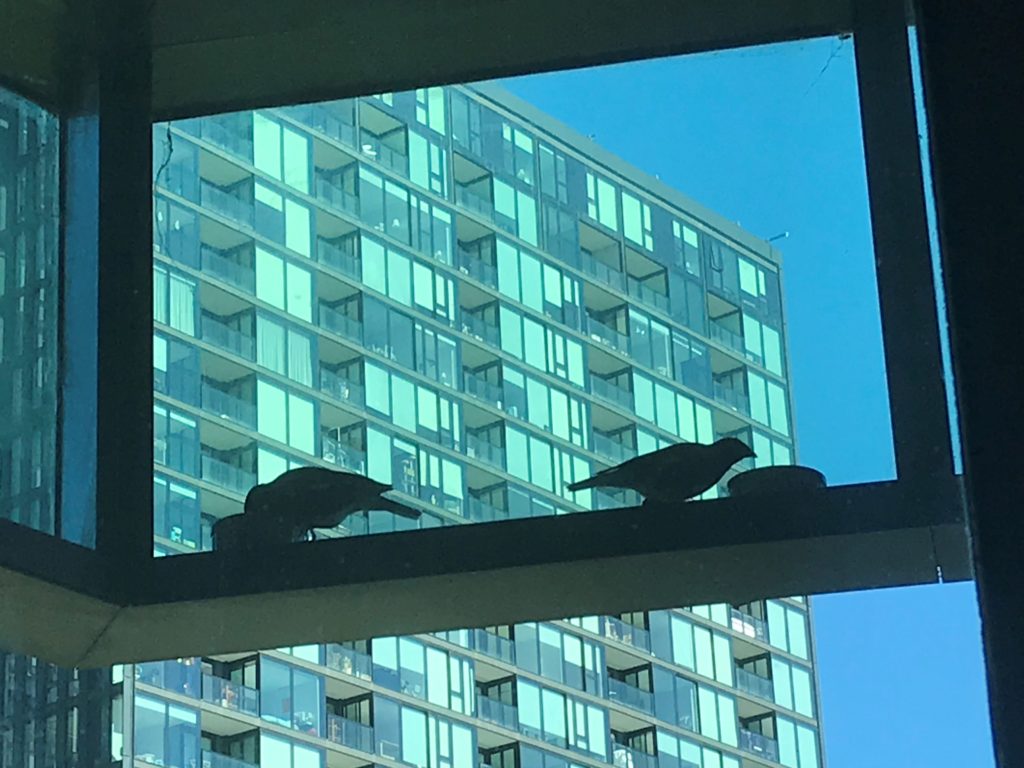I have talked about this phenomenon before, but I think it’s quite relevant for the present day. Let’s talk a bit about loops and spoons.
A loop is an unfinished commitment. It might be something you promised someone else you would do, or it might be something you promised yourself. In psychology there’s a theory called the Zeignarnik Effect which suggests we think more about unfinished tasks than we think about finished ones. Even if this is not true (and some of the research is inconclusive) we do know that we all seek “closure” of these loops. We like things to be done. We think about things that are not done.
Some examples of longer term open loops in my life:

I bought that book when I graduated high school in 1998. I thought it was something smart kids would read, I still haven’t even read the first page. I borrowed those balls off my friend Viren to learn juggling in about 2001. He told me he wanted them back at the time. I haven’t forgotten, V, I kept them for almost 2 decades, but I will give them back to you eventually! That colourful binder is photos that I promised my church I would scan about 8 years ago. I’ll get around to it, I just don’t have a scanner. Oh, and that big box is a control project for my friend’s distillery project which I haven’t done anything on since I moved to Australia 4 years ago. Sorry John.
Loops don’t have to be long-lived though. They could be something as simple as items on a shopping list or an email you meant to write. Closing a loop brings you closure. An “open loop” or an incomplete thing will weigh on your mind no matter how good you are at distracting yourself.
They also don’t have to be chores or bad things. I have open loops about things I am looking forward to, such as seeing friends or celebrating things, food or drink. Everything, even fun things, require energy.
This brings me to spoons. Spoon theory offers a neat metaphor for how much capacity we have for activities during the day. It’s usually used by people with disabilities or chronic fatigue talking about their experience, but I believe we all have spoons to varying .degrees A spoon is a metaphor for a unit of effort we can apply to something. It includes physical, intellectual as well as emotional effort.
I have a further thought for you: open loops use up spoons.
It’s not as far-fetched as it sounds. The amount of mental and emotional energy it takes to remain aware of but not address your closed loops is non-zero. It takes effort. Think of it this way: every unclosed loop has a spoon in it. Just keeping the loop open as it were. This happens in real life. I am constantly leaving spoons in containers of things I use regularly because it’s more convenient to keep the spoon there than clean it and use a fresh spoon next time.

But emotional spoons keeping open loops is not a convenience. You can’t just will those loops away. I have books I remember half-reading in my childhood that still weigh on me: we never finished “My Side of the Mountain” in English class and the lack of closure still weighs on me just a little.
Why am I writing about this? Well, over the last little while I have closed some loops and recovered some spoons I had forgotten in their containers. It was such an amazing feeling I thought I would share this with you in the hopes you could go collect some of your spoons as well.
Now, I should start by saying I have a very high capacity of spoons. I am privelaged to be able to cope with a lot of stuff. So much so that I think I often seek complexity out. My calendar at work looks like some kind of abstract art with all the meetings I am scheduled in, and those moments where I don’t have meetings I get phone calls – sometimes I get phone calls during meetings too.
So, when I say that sometimes I have so few spoons I struggle to get dressed in the morning, I am not asking for some kind of sympathy. I am just reinforcing our shared experience: we all run out of spoons eventually, if too much stuff is going on. We all have our capacity, and it’s dangerous to overtax ourselves.
For me at the moment, I am working on about half a dozen projects at work, but three are quite significant. There’s a huge data-oriented project for a very difficult client underway and I have been worried for months now about the performance of a particular part of the system. It just wasn’t right. I have been chipping away at it mentally for weeks now and despite the fact that I have been trying not to work on the weekends, it’s always hard to enjoy weekends because there’s something hanging over you like the sword of Damocles. That thing you know you should be doing, that’s just not done. It’s unfinished, it gnaws at you like an open bottle of milk, expiring slowly on the counter.
Well, Friday morning I sorted it. I implemented a solution I was finally confident in. The sense of relief and closure that gave me provided me with enough spoons to tackle another issue that had been bugging me on a different project. I solved a problem that I have been thinking about for well over a year. It only took me 4 hours, but I could never have done it without enough mental capacity.
I believe closing loops can have a domino effect. You close a loop (use up the sugar in the bag) and reclaim a spoon. You can now re-purpose that spoon for addressing the next loop, and so on. This can be a virtuous cycle if you can game the system.
So, here then, dear reader, is my advice:
If you’re feeling low on spoons, do your best to close some loops.
OK, I know what you’re thinking: the whole point is you don’t have the spoons, how can you do anything without the spoons in the first place?
Well, the funny thing is, you can get a little bit of quarter teaspoon back by creating and closing little loops. When I am low on energy I tell myself “OK, you’re going to get up and have some breakfast, then you’re going to have a coffee”. Turning mundane things you were going to to anyway into a loop allows you to chalk them up as a “win”. Sometimes, for me, winning is putting socks on.
Another lesson is breaking loops down into constituent parts. Rather than have a task of “clean the apartment” which frankly may as well be “conquer Everest” I have tasks that are much more modest “put that piece of paper away” is a small achievable goal you can work on and feel good about, even if everything else is on fire.
Just be careful not to start too many of these little things. I am concious that while I was writing this post I was also:
- doing laundry
- making kombucha
- thawing food for dinner
- looking for a CD for a friend
- making coffee
- making chai tea
- finding a place for chai tea
- looking for the cable for the PlayStation so I can play the CD
- working on a blog post for my game
It’s so easy to spin up a dozen loops, only close half of them and get stuck back where we started or worse. I think this is what my ADHD friends experience: you get a burst of energy and so this spins up a bunch of loops, but it’s hard to focus and you lose interest in the task but… the task itself remains there, eating away at your soul, consuming your precious spoons.
That’s another one which I am trying to learn: don’t take on loops you don’t want. It sounds simple right? But most of the loops that weigh most heavily on my mind are those obligations where someone asked me to do something… I didn’t really want to, but I agreed to anyway. This could be as elaborate as helping a friend or colleague solve a tricky technical problem or as simple as a friend who wants to catch up for a coffee. Sometimes you need to say “no” to things like that, so you can dig yourself out of the other loops.
Oh, and above all be kind to yourself. If you’re low on spoons because they’re all stuck taking care of unclosed loops, it might be all you can do to just sit quietly on the couch and not cry… or maybe go ahead and cry, I won’t tell anyone.
Because the thing is. When you have no spoons you have no spoons, and the only thing you can do is wait until your capacity grows. Usually sleep helps with that (though if you’re an insomniac, sleep itself can seem like a daunting and impossible task). I guess my thought here is just do whatever gives you the most energy until you have worked up enough spoons to go tackle the next open loop. And make it a small one.
Oh, and there’s another thing I am not good at. Some loops remain open because you’re a perfectionist… you know who you are. You know you can’t call it – won’t call it – till you have perfected it. But sometimes, dear reader. Done enough is good enough and you can simply close the task off.
Like this post – in the past I might have written a first draft and re-worked it over a week or so, but I am trying to be braver than that. So I’m publishing this now and I hope some of these thoughts help you. I know they have helped me.

